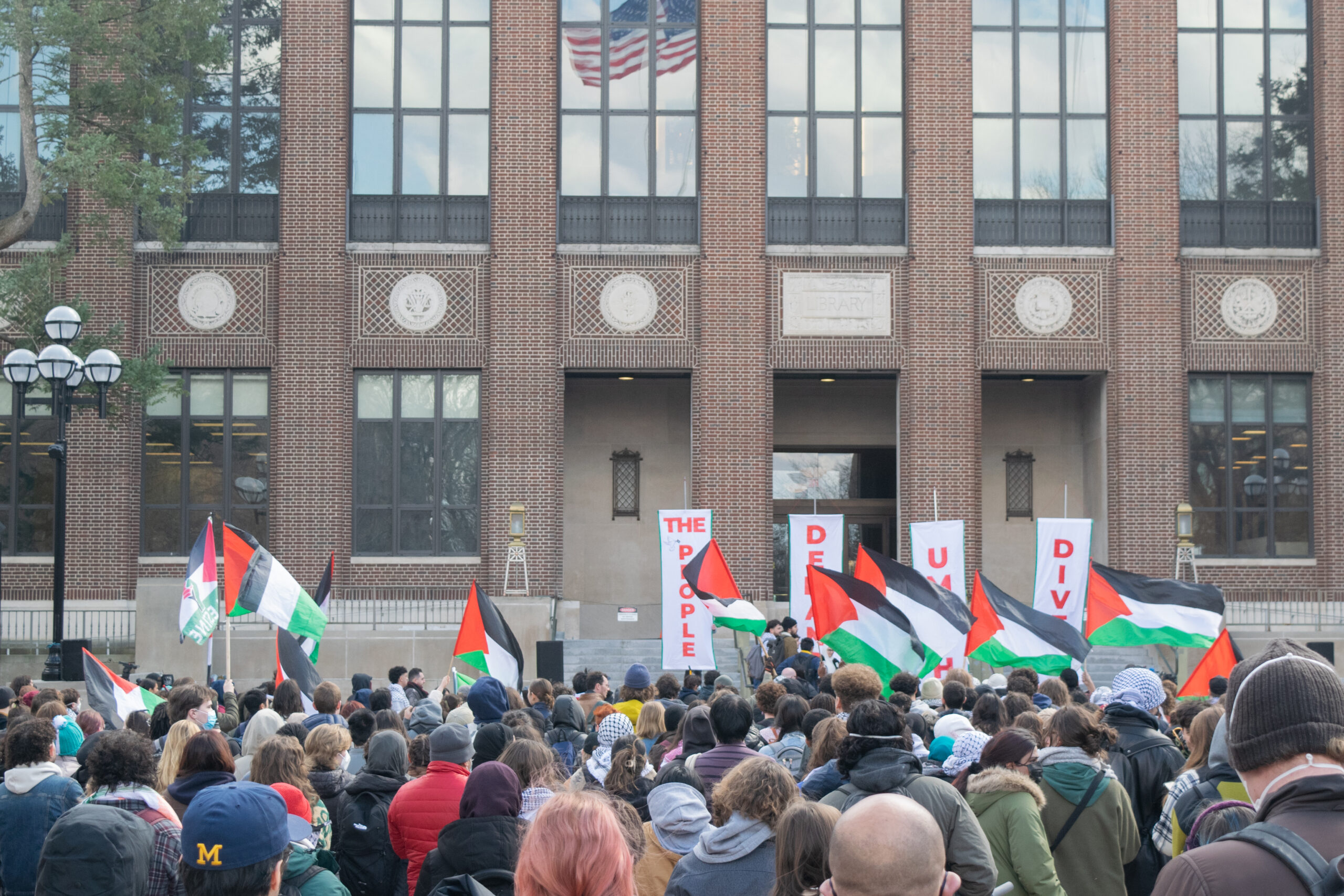In the wake of a pro-Palestinian protest that halted the Honors Convocation on March 24, U-M released a draft policy outlining consequences for disrupting university operations and events. The proposed Disruptive Activity Policy, released March 27, prohibits all people “without legal authority” from impeding university traffic, classes, and events.
The 101st Annual Honors Convocation was disrupted by a group of student protesters opposed to the university’s investments in companies with ties to Israel. During the ceremony, protesters stormed the stage chanting, “Ono, Ono, you can’t hide, you are funding genocide.” Many of the students carried signs with slogans such as “UMich Funds Gaza Genocide” and “[University Regent Mark J.] Behm Has Blood on His Hands.” University President Santa J. Ono decided to cut the ceremony short owing to the disruption.
The Disruptive Activity Policy forbids students to “prevent or impede the free flow of persons about campus” or disrupt “any class, laboratory, seminar, examination, performance, formal proceeding, activity in a reserved space, field trip, or other educational, research, artistic, athletic, medical, operational, or service activity occurring on UM Facilities.” Acts constituting disruption include “obstructing lines of sight, making loud or amplified noises, projecting light or images, or otherwise creating substantive distractions.”
If students do not comply with requests to cease their disruptive demonstration, the policy states, they can be subject to the full extent of “existing laws, ordinances, and University rules—including requests for misdemeanor charges under Article XII of the Regents’ Ordinance and state trespass law, MCL 750.552.” Defendants found guilty under that statute could face up to 30 days in jail and a fine up to $250.
The disruption of the Honors Convocation was only one campus event shut down by pro-Palestinian agitators. In November, activists chanting and smearing red paint on the walls of the Michigan League stopped a speech by Newsweek senior editor at large Josh Hammer for more than a half hour while police officers looked on.
Ben Estell, chairman of Young Americans for Freedom at the University of Michigan, which hosted the Hammer event, told the Michigan Review he wants U-M to explain why it is only now taking action against disruptive protests:
While U of M stood back and allowed the disruption to our event to occur, including allowing the protestors to steal items from our chapter’s table, they decried the protestors at Sunday’s event, and seem determined to take action. Why the double standard? Do participants at the Honors Convocation have a right to head the speaker, but participants at our event do not? Does freedom of speech apply to only some campus events, or all campus events?
Some students were worried the proposed policy goes too far and threatens free expression. Hudson Schantz, treasurer of College Republicans at the University of Michigan, told the Michigan Review:
I fear this policy is written as an emotional reaction to recent events without thinking about the long term effects. While we may not always agree with why certain students are protesting for certain causes, we should respect their right to do so as a public university under the provisions of the First Amendment.
Students have through April 3 to leave their comments on the proposed policy.
